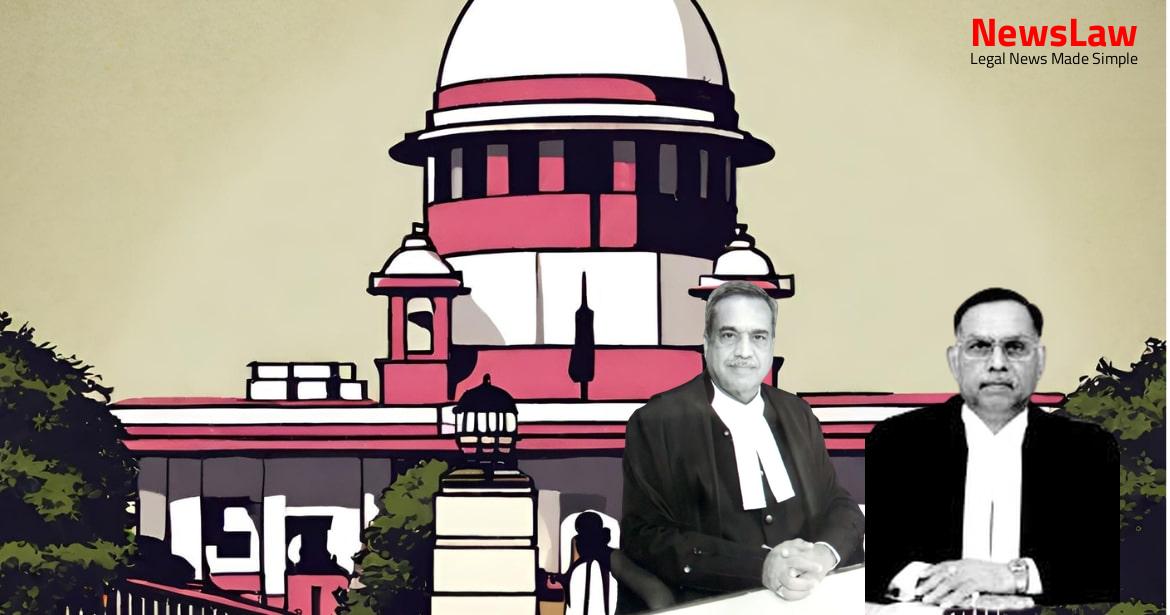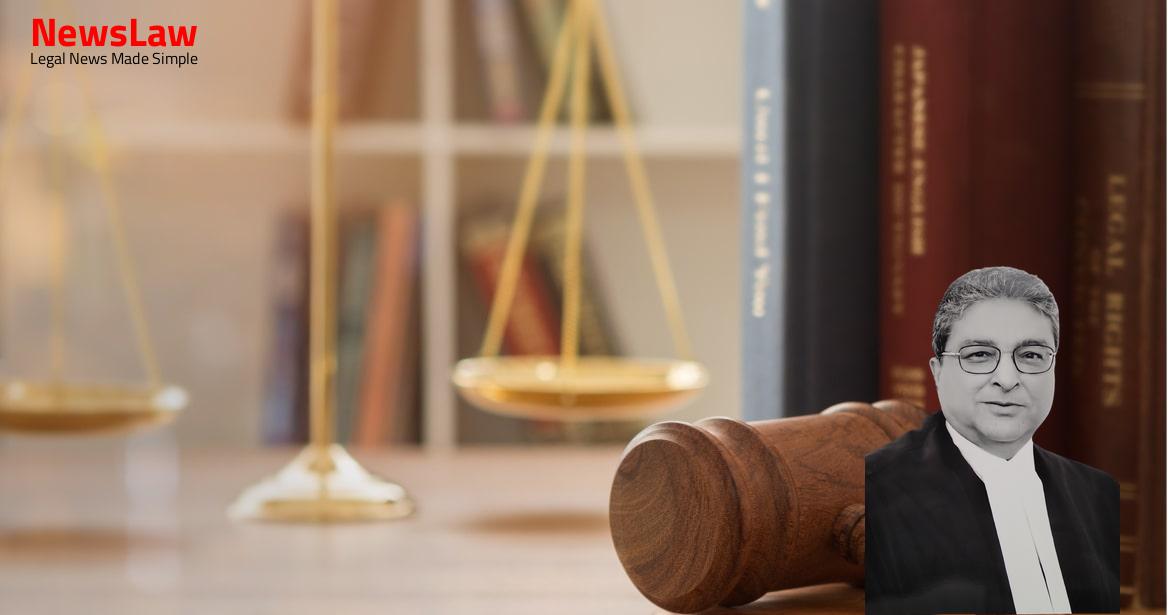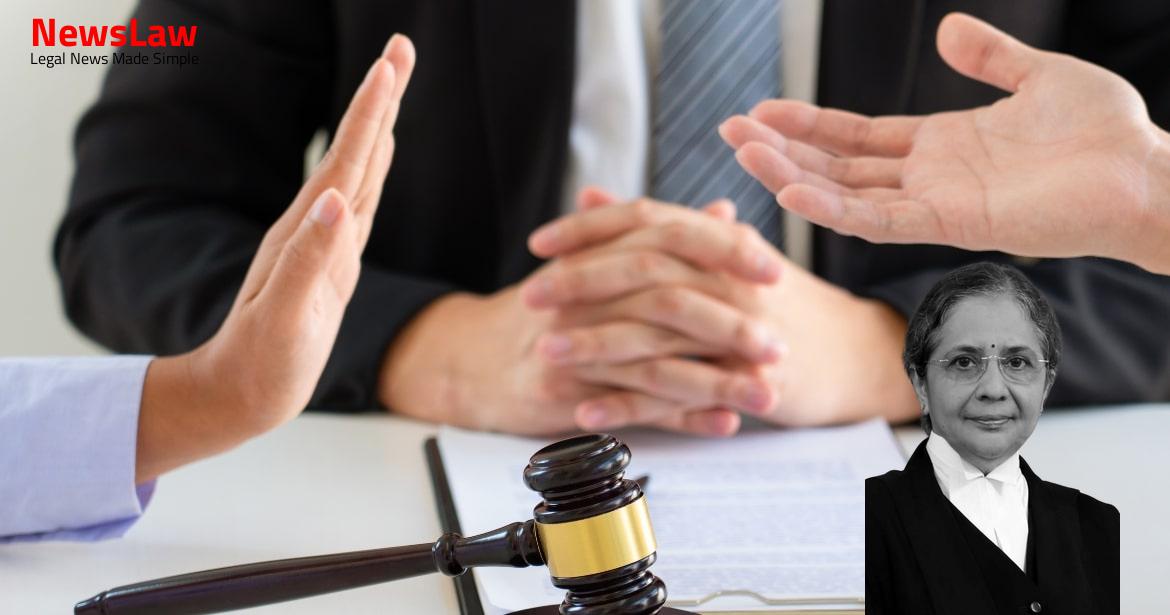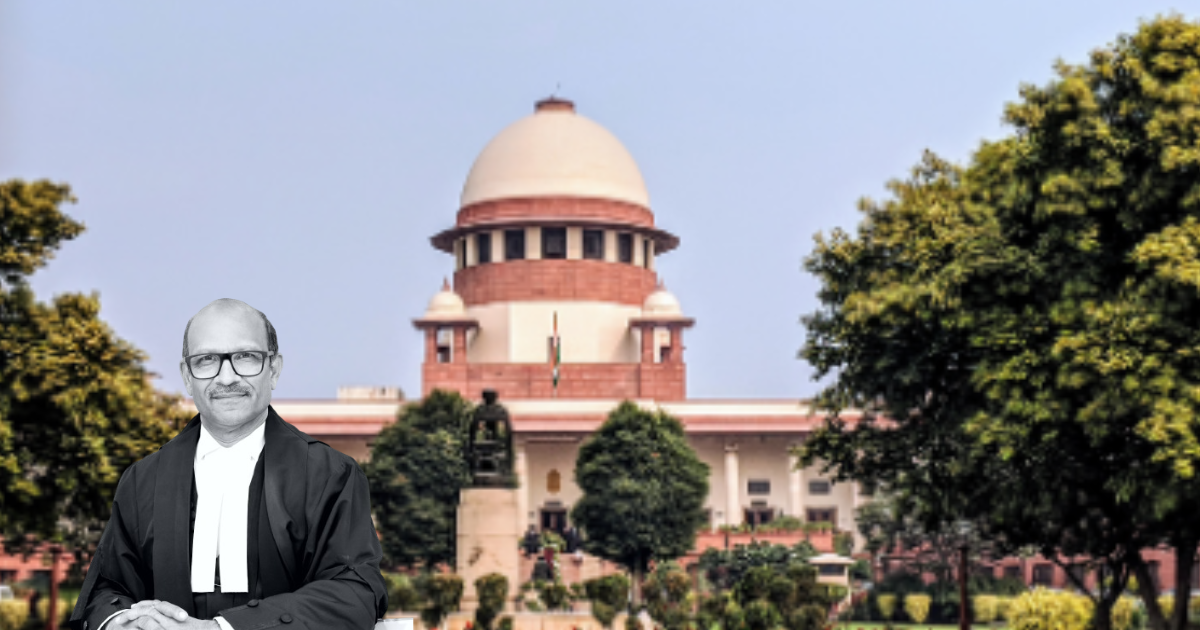In a significant legal battle, the Supreme Court of India has delivered a crucial judgment in the case of The State vs. Accused. The ruling addresses the complex issues surrounding the applicability of Section 304 of the IPC in the context of a fatal injury caused during a quarrel. Stay informed about this case and its impact on legal proceedings in the country.
Facts
- The appellant-accused is aggrieved and dissatisfied with the impugned judgment passed by the High Court of Calcutta.
- The High Court dismissed the appeal and affirmed the conviction of the accused under Section 302 of the IPC.
- The convicted accused has now filed the present appeal challenging the judgment and order of the High Court.
Also Read: Interpretation of Lease Agreement and Compulsory Registration
Arguments
- Accused did not bring any weapon/lathi and caused the injury on the deceased during the altercation with a lathi found on the spot.
- Deceased was taken to different hospitals and succumbed after seven days, indicating no premeditated murder.
- Accused had no intention to cause the fatal injury to the deceased.
- Request to set aside the conviction under Section 304 IPC and consider a lesser charge under either Section 304 Part I or Part II of the IPC.
- Ms. Soumya Chakraborty, Learned Senior Advocate, represents the respondent-State and supports the impugned judgment passed by the High Court.
- It is emphasized that the injury caused by the accused has been proven to be fatal.
- Even a single blow can result in a case under Section 302 IPC, particularly if it is directed at a vital part of the body, based on Exception 4 to Section 300 IPC.
Also Read: Legal Interpretation in Light of Section 148 of NI Act: Revisiting Appellants’ Case
Analysis
- The incident took place on the spur of the moment after an altercation.
- There was no apparent intention on the part of the accused to cause the fatal injury.
- The death resulted from a quarrel and not from a premeditated act.
- The deceased, despite a head fracture, was conscious after the injury.
- The case falls under Exception 4 to Section 300 IPC due to the spur-of-the-moment nature of the incident.
- The accused did not carry any weapon when he arrived at the scene of the incident.
Also Read: Enhancing Compensation and Modifying Sentences: A Legal Analysis
Decision
- The injury sustained by the deceased led to the appellant being guilty under Part I of Section 304 IPC.
- The offence committed by the appellant does not amount to murder but rather falls under Section 304 Part I IPC.
- The appellant has been sentenced to undergo imprisonment for 10 years under the specified section.
- The conviction under Section 302 IPC has been set aside in light of the circumstances of the case.
Case Title: ANANTA KAMILYA Vs. THE STATE OF WEST BENGAL (2020 INSC 9)
Case Number: Crl.A. No.-001930-001930 / 2019



